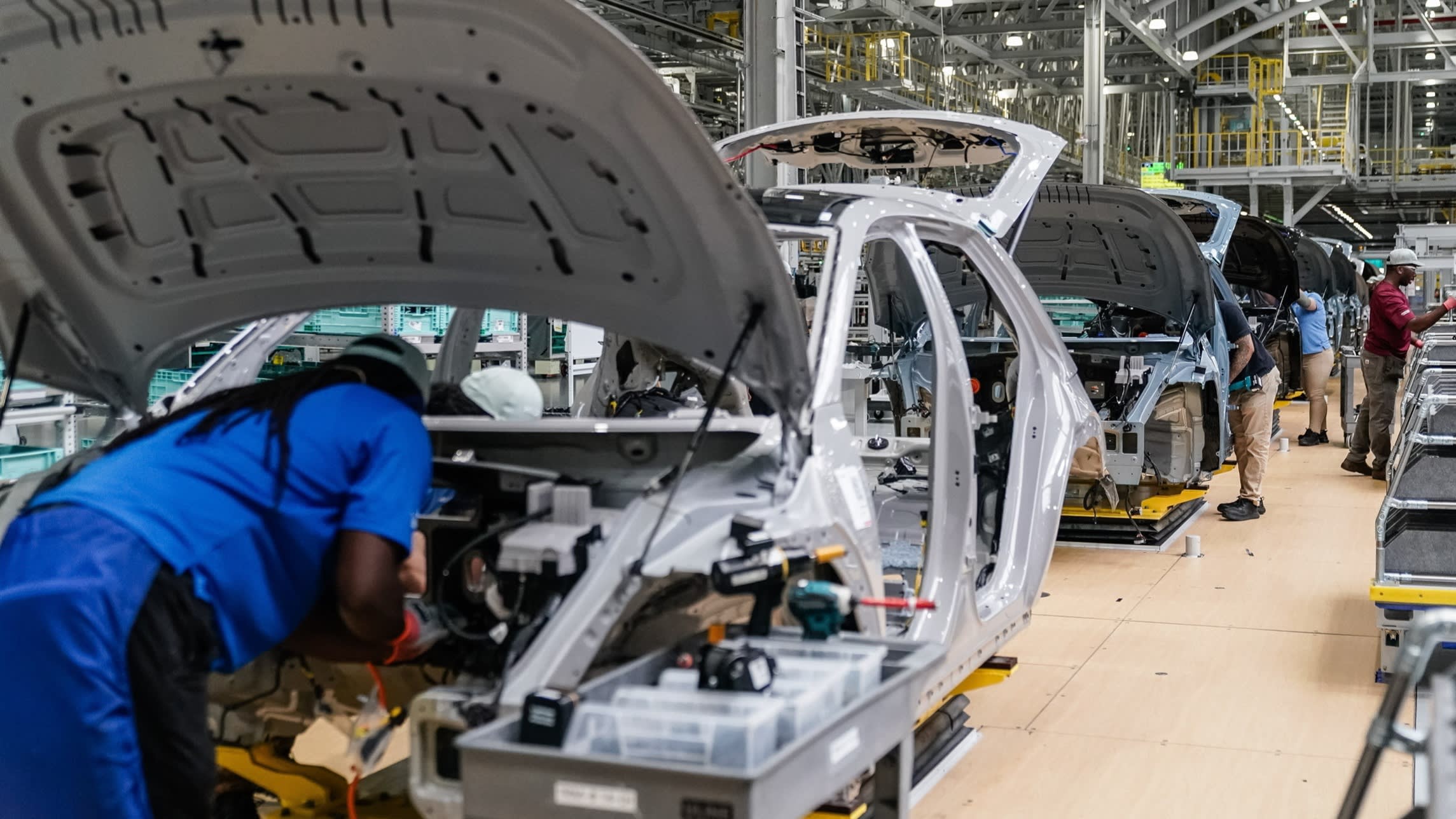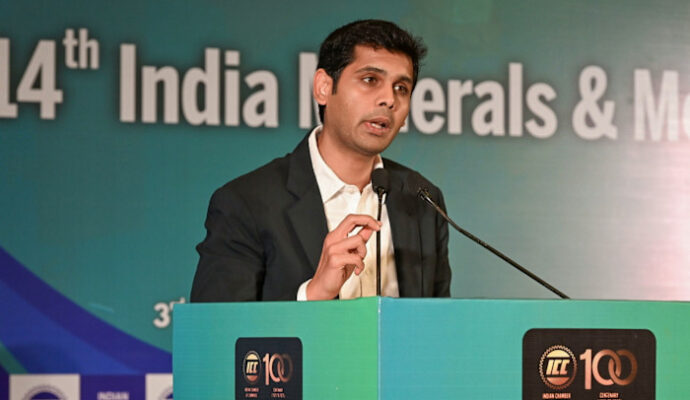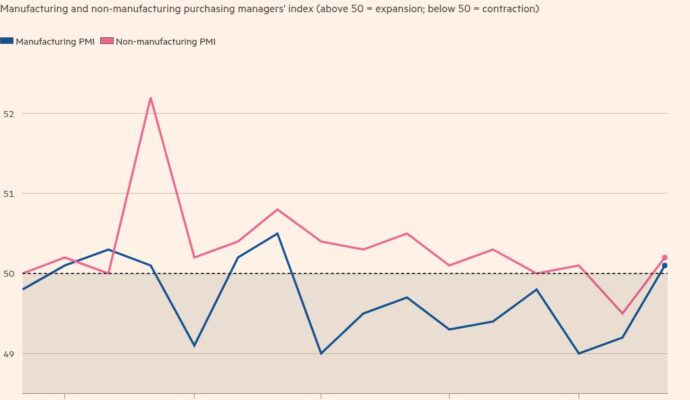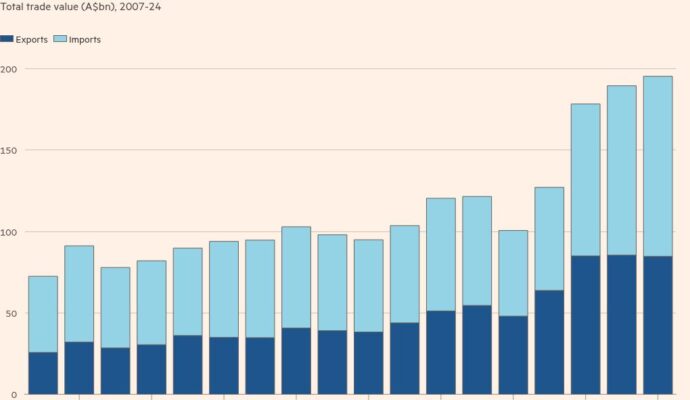
Unlock the Editor’s Digest for free
Roula Khalaf, Editor of the FT, selects her favourite stories in this weekly newsletter.
Hyundai chief executive José Muñoz has called for new visas for short-term work travel in the wake of an immigration raid on its facilities in Georgia.
The hundreds of South Korean labourers who were deported had specialised skills that the company could not find in the US, Muñoz said at a conference for Hyundai investors in New York on Thursday. While the group maintained its commitment to completing the project, it said its work would be delayed.
“I think we have put [in] all the building blocks to achieve the full successful transition,” Muñoz said. “All we need is a platform in terms of the visa system that allows for this situation not to happen again in the future.”
The world’s third-largest carmaker blamed US tariffs for the cut in its profit guidance, but maintained its commitment to making 80 per cent of the vehicles sold in the US locally by the end of the decade, up from the current 40 per cent.
But Muñoz told investors: “I think we have considerable opportunities to grow in the US without a doubt. And it’s today the most profitable market. It will continue to be the most profitable market, but we cannot only depend on the US.”
He added China would be a new focus for the South Korean group: “It could be more profitable, a bit like the United States . . . and I think now it’s time to address the other opportunities.”
The arrests of hundreds of South Korean workers by US agents at the Hyundai-LG battery plant had prompted warnings from South Korean President Lee Jae Myung that companies would be “more hesitant” about investing in America.
The carmaker also pledged to expand its hybrid offerings in response to President Donald Trump’s anti-electric vehicle policies, while dropping its previously stated target of 2mn EV sales by 2030.
Sales of battery-powered cars are expected to slow in the US after Trump cancelled EV incentives. Hyundai said it now planned to introduce more than 18 hybrid models as part of its target to sell 3.3mn electrified models.
The group, which also makes the Kia and Genesis brands, lowered its operating profit margin for 2025 to a range of 6 per cent to 7 per cent, down one percentage point from its earlier forecast, because of the impact of higher US tariffs on cars imported from South Korea. It will aim for a range of 8 per cent to 9 per cent by 2030.
Lee Hang-koo, a researcher at the Korea Automotive Technology Institute, said: “Hyundai is facing a triple whammy in the US as it has to grapple with a tariff gap with Japanese rivals, the absence of tax credits for EV purchases and the delayed completion of its battery joint venture.”
“The absence of tax credits will make EV sales in the US more difficult,” he added. “It is more painful for Hyundai because it is the area where Hyundai had an edge over Japanese rivals.”
Lee expected Hyundai to increase US investments to boost capacity there and modernise its American plants.
Muñoz said its forecast was based on the assumption that the 25 per cent tariff on Korean car exports was likely to be maintained for the time being with talks between Seoul and Washington hitting an impasse over details of Korea’s $350bn investment pledges.
Investors have praised Hyundai for its successful transition to EVs while increasing global sales of hybrid and internal combustion engine cars in recent years.
Its second-quarter revenues rose 7 per cent from the previous year, although US tariffs hurt its margins, depressing net profits by 22 per cent.
Hyundai raised its sales growth rate for the year from its previous target of between 3 per cent and 4 per cent to 5 per cent and 6 per cent, thanks to an improved product mix centring around higher-priced SUVs, large vehicles and luxury cars, including its Genesis cars.
Muñoz said the opening of the raided battery plant, which was under construction, was expected to be delayed by at least two months as it brings in supplies from other facilities. It was previously scheduled to be operational before the end of the year.
Last week, the US and South Korea agreed to set up a joint working group to address short-term visa issues for Korean workers.
Hyundai said its new vehicle facility in Georgia will add production capacity of 200,000 units by 2028 following a $2.7bn investment that will create 3,000 new jobs.


